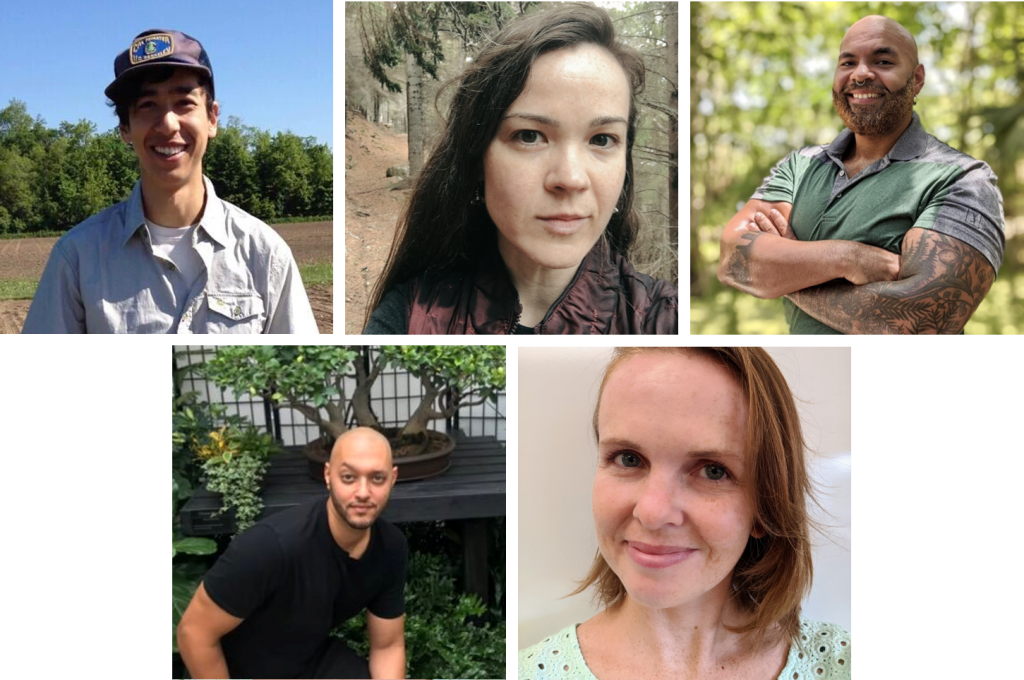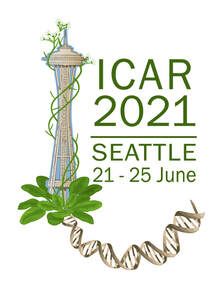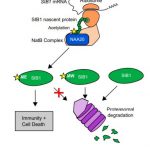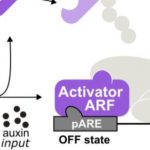ASPB and NAASC: “Changing Cultures and Climates” Initiative
By Asia Hightower, Edith Pierre-Jerome, and Imani Madison
In light of historical and recent world events, ASPB and NAASC (North American Arabidopsis Steering Committee) are partnering to further equity, diversity, and inclusion (EDI) initiatives that are in alignment with the missions of both societies.
In the coming weeks, a group of individuals affiliated with these organizations will be assembling a website (hosted on Plantae.org) with more information and opportunities.
As a preview, here are some of the EDI events and resources featured by ASPB and NAASC.
Plant Biology Worldwide Summit, July 27-31
Evo-Devo 2020: Case Studies in Diversity
Monday July 27th, 2020, 1:30 PM – 2:32 PM EDT
- Keeping developmental time: A developmental hourglass in grass inflorescence development. Sam Leiboff, PhD. Assistant Professor, Oregon State University, Botany and Plant Pathology
- The effect of the environment on life history phenology; botanizing while indigenous. Amber R. Nashoba, MS, PhD. Adjunct Professor, University of Alaska Anchorage.
- Evolution & diversification of plant-plant communication: An intermediate hypothesis. Jordan Dowell. Ph.D. Candidate, University of Central Florida, Conservation & Integrative Biology.
- The START domain of the deeply-conserved and essential HD-ZIPIII proteins regulates their transcriptional activity by multiple mechanisms. Aman Husbands, PhD. Assistant Professor, The Ohio State University, Dept. of Molecular Genetics.
- The evolution and diversity of CAM leaf anatomy. Karolina Heyduk, PhD. Assistant Professor, University of Hawaiʻi at Mānoa. School of Life Sciences.

Minority Affairs Committee presents
Equity, Diversity, Inclusion: Effecting Institutional Change
 Wednesday July 29th, 2020, 11:30 AM -12:30 PM EDT
Wednesday July 29th, 2020, 11:30 AM -12:30 PM EDT
Featuring a panel discussion led by Dr. Beronda Montgomery, PhD. Michigan State University Foundation Professor, Departments of Biochemistry & Molecular Biology and Microbiology & Molecular Genetics.
Minority Affairs Committee and Women in Plant Biology present
Implicit Bias & Conscious Inclusion Workshop
Friday July 31st, 2020, 4:00 PM – 5:30 PM EDT
The workshop will include information on defining and understanding unconscious bias, and the benefits of diversity in the workplace.
Breakout sessions within the workshop will stimulate round-table discussion on a number of topics including: biases in the workplace/hiring/laboratory settings, biases on social media, biases in nominations and recognition, biases in collaborations, and more.
Real-life scenarios will be used as tools for teaching ways to avoid the different way implicit bias may manifest.
NAASC-coordinated projects and opportunities
Diversify Plant Science (DiversifyPlantSci)
The North American Arabidopsis Steering Committee (NAASC) is committed to promoting a global plant sciences community that reflects the true diversity of all its members
To further this mission, the NAASC Diversity and Inclusion Task Force (contacts: [email protected], [email protected], [email protected]) have created the DiversifyPlantSci online resource, a list of plant biologists from under-represented groups to reference as you seek speakers, reviewers, and participants for career or mentorship opportunities. We hope to increase diversity and inclusion by making it easy to expand invitations past one’s personal networks.
To add yourself to the list: https://goo.gl/forms/s461eDrbKzoK1JzD2
DiversifyPlantSci online resource: https://tinyurl.com/DiversifyPlantSci
Follow us on Twitter: @DiversifyPlants
URM Full Funding Awards for the International Conference on Arabidopsis Research
 (NSF-Funded): The primary goal of this funding is to provide new opportunities for US scientists that are themselves under-represented in US science (or that teach, or otherwise impact, groups under-represented in US science) to participate in the annual international platform plant biology conference that focuses on the model plant, Arabidopsis thaliana.
(NSF-Funded): The primary goal of this funding is to provide new opportunities for US scientists that are themselves under-represented in US science (or that teach, or otherwise impact, groups under-represented in US science) to participate in the annual international platform plant biology conference that focuses on the model plant, Arabidopsis thaliana.
Two paths to eligibility:
(1) Native Americans (American Indians and Alaskan Natives), African-Americans, Latinx-Americans (specifically of Central or South American descent), and Native Pacific Islanders; and/or
(2) Faculty who work at federally-designated US Historically Black Colleges and Universities (HBCU), Black-serving non-HBCUs, and 1890 Institutions and who are directly supporting the education and professional development of students or postdocs in the described under-represented groups.
NOTE: ICAR 2020 is being postponed and will become ICAR 2021 (June 21-25, 2021) at the same location: University of Washington, Seattle
Why attend ICAR 2021?
It’s a great way for students, postdocs, and faculty to:
- Network with leaders in plant science and have chances for individual mentoring
- Learn more about diverse career opportunities in this field
- Opportunities to present your work and interests to others
- Special social and professional program for recipients of under-represented minority awards



